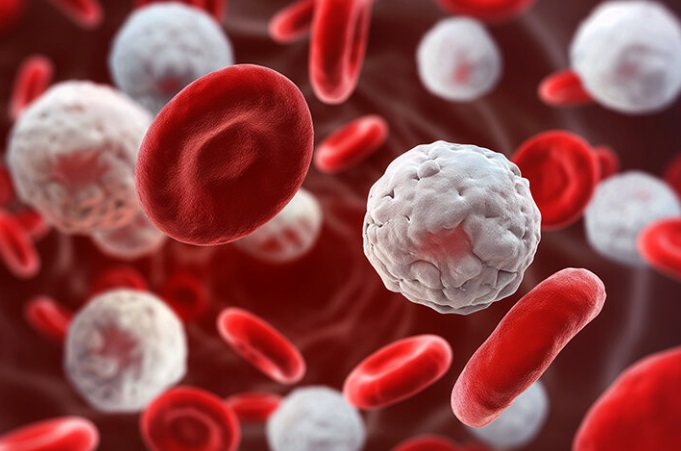French Study Finds That COVID-19 Triggers Early Immune Chaos in Blood Cells Causing Long Term Damage
Nikhil Prasad Fact checked by:Thailand Medical News Team Jul 31, 2025 6 months, 3 weeks, 3 days, 28 minutes ago
Medical News: New study reveals dramatic changes in key immune cells after SARS-COV-2 infection
A new study by researchers from University of Lille, CHU Lille, INSERM-France, the University of Wisconsin–Madison-USA, and other collaborating institutions has shed light on how COVID-19 triggers intense and prolonged disruption to the body’s innate immune response, particularly in the blood. The findings may help explain why some people experience severe complications and lingering symptoms long after recovering from the virus.
 French Study Finds That COVID-19 Triggers Early Immune Chaos in Blood Cells Causing Long Term Damage
French Study Finds That COVID-19 Triggers Early Immune Chaos in Blood Cells Causing Long Term Damage
The research involved 40 hospitalized COVID-19 patients in France and tracked their immune responses over a 30-day period. Unlike previous studies that only looked at single timepoints, this study offered a more detailed timeline of how blood eosinophils, neutrophils, and monocytes change during infection. This
Medical News report summarizes how these changes could be contributing to disease progression and long-term damage.
Eosinophils Drop and Morph Within Days
By the first day of hospitalization, blood eosinophils—white blood cells involved in fighting viruses and inflammation—dropped by 95%. But this drop was not the only concern. These cells also displayed a highly altered phenotype: high levels of CD69, CD63, and CD125 (markers of cell activation and inflammation) and low levels of CCR3 and CD44 (key for cell movement and signaling). Interestingly, this shift did not align with typical allergic or asthma-like reactions, pointing instead to a unique reprogramming process occurring in the bone marrow.
Neutrophils Surge and Become More Harmful
In contrast to the early fall in eosinophils, neutrophil counts only began to rise by Day 7. These immune cells, which usually help destroy pathogens, became increasingly immature, activated, and immunosuppressive. Subsets with concerning profiles—such as CD10/CD16low and CD16highCD62Llow—were found in increasing numbers. These abnormal cells are more likely to release toxic molecules that can damage lung tissue and promote blood clots. The study also found elevated levels of neutrophil-related substances like MPO, MMP8, and lactoferrin in the blood throughout the illness, suggesting sustained activation.
Monocytes Show Early Signs of Disruption
Monocyte counts were initially low but recovered by Day 30. Still, the researchers found early-stage monocytes had abnormal surface proteins, including high levels of CD64, CD16, and IFNAR2. These could signal a hyperactive or dysfunctional response. Additionally, the study observed an early surge in a chemical called CX3CL1, which is linked to the recruitment of non-classical monocytes—cells believed to worsen lung inflammation in severe COVID-19 cases.
Conclusions
This groundbreaking study demonstrates how COVID-19 causes a cascade of immune cell disruptions starting almost immed
iately after infection. Eosinophils vanish and reprogram, neutrophils become abnormally aggressive, and monocytes show signs of excessive activation. These immune shifts may fuel not only severe initial illness but also set the stage for long COVID. Understanding these early changes can lead to better treatments and possibly early interventions. Further research is needed to pinpoint how these cells interact and to identify the signals driving these transformations.
The study findings were published in the peer reviewed journal: Cells
https://www.mdpi.com/2073-4409/14/14/1093
For the latest COVID-19 News, keep on logging to Thailand
Medical News.
Read Also:
https://www.thailandmedical.news/news/researchers-warn-platelet-concentrates-from-covid-19-recovered-blood-donors-may-be-unsafe-for-medical-use
https://www.thailandmedical.news/news/covid-19-can-trigger-deadly-autoimmune-hemolytic-anemia-which-often-shows-no-early-symptoms
https://www.thailandmedical.news/news/sars-cov-2-alters-blood-formation-and-triggers-immune-aging-in-stem-cells
